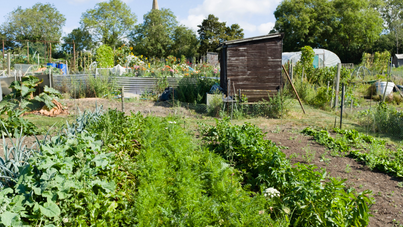Author
There is no comprehensive statutory definition of ‘allotment’. The many different types of allotment in existence make this a complicated area legally, as explained below.
What is an allotment?
Garden allotment, field garden, fuel allotment, charitable allotment, privately let allotment, smallholding, cottage holding, market garden . . . all allotments, right? Wrong. Smallholdings and market gardens aren’t allotments at all, and actually, an allotment is only technically an allotment if it was land allotted to someone as a result of an enclosure award.
There are different rules for different types of ‘allotments’, and, confusingly, different statues define different types in different ways for different purposes. And with ‘allotments’ dating back to Anglo-Saxon times, there is a long history of case law, too. So, understanding exactly what you’re dealing with is crucial to determining what you can and can’t do with your ‘allotment’ from a legal point of view. Whether it’s setting the rent, understanding restrictions on use, seeking to rely on the termination rights as either a landlord or a tenant, calculating compensation on termination or considering planning permission, it may not be straightforward.
Garden Allotments
The most common type of allotment is a ‘garden allotment’, which is defined in section 22(1) of the Allotments Act 1922 (the “1922 Act”), as being (for the purposes of that specific Act):
an allotment not exceeding forty poles in extent which is wholly or mainly cultivated by the occupier for the production of vegetable or fruit crops for consumption by himself or his family.
While an allotment could potentially be subject to the Agricultural Holdings Act 1986, a garden allotment could never be, as by definition the produce is grown for personal consumption.
Armsby v Pointalls Allotments Ltd
The recently appealed case of Armsby & Price v Pointalls Allotments Ltd [2022] EWHC 2803 (Ch) concerned whether notices to quit served by the defendant company (the landlord) on two of the garden allotment tenants, were valid. After a five-day trial, the judge at first instance concluded that the notices served on the basis of the tenants’ anti-social behaviour – in breach of the terms of their tenancies – were invalid, but that the notices served in accordance with the 1922 Act giving the tenants a year to vacate, were valid. Both the claimants and the defendant appealed, but their arguments were dismissed by the High Court in October last year.
The key points to take away from this case are:
- A landlord’s right to serve a notice to quit of 12 months pursuant to section 1(1)(a) of the 1922 Act is unqualified: no reason is required and motive is irrelevant;
- A landlord’s ability to serve short notice of three months depends on there being a clause to that effect in the tenancy; and
- Crucially, the ability of a landlord to forfeit a tenancy immediately because of a breach of its terms also depends on there being a clause to that effect in the tenancy, even though that is not set out in the statute. Regardless of what the clause in the tenancy says in this respect, the landlord must also comply with section 146 of the Law of Property Act 1925 to forfeit the lease.
Conclusion
Despite having been around so long, or perhaps because of that very fact, the law concerning allotments is complex and nuanced. Understanding what kind of allotment you have is crucial to the correct interpretation of the law and the rights and obligations of the parties.
Much development land is located on the fringes of towns and villages and is the very land often used for allotments. Thus, ascertaining the type of allotment for existing arrangements and getting a good allotment agreement in place at the outset for new arrangements is critical. This affects, in particular, the ability of landlords to recover possession of their land at a time of their choosing, as the recent appeal in the matter of Armsby v Pointalls Allotments Ltd demonstrates.
Print article

